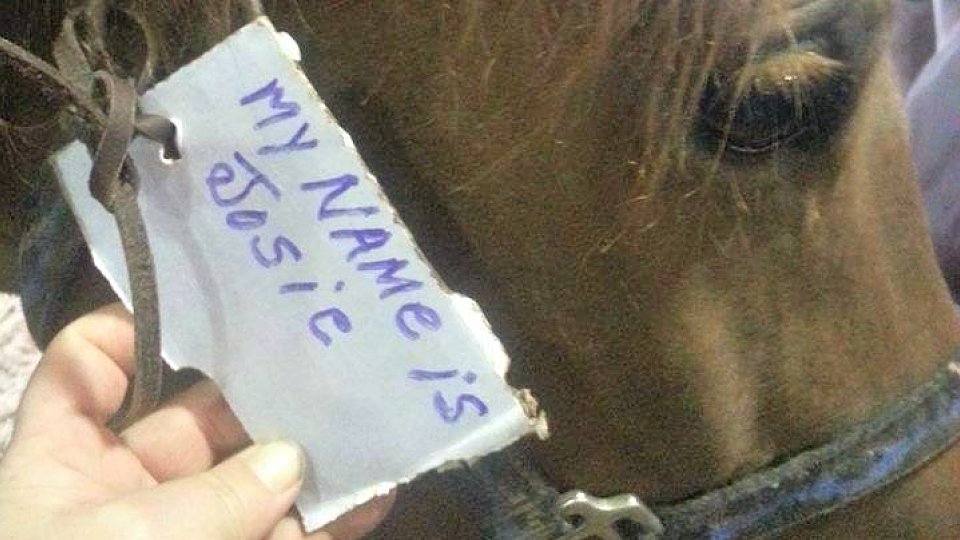The Unwanted Horse
If you’ve been following my page you’ve probably heard me say, “slaughter is not the problem, it’s the result of the problem.” Recently numerous people shared and tagged me in the ‘Horses Are Packed Into These Crates for the Saddest Reason’ article. Basically ‘the dodo’ explains how live horse are exported from Canada to Japan to be used in sushi. This is not really new information, but it was presented in a clickbait format that got many people to read and share the article. And awareness is good. The end of the article offered a petition to sign, a way to contact the Canadian Food Inspection Agency and a way to donate to the Canadian Horse Defense Coalition. But where are all of these horses coming from? To express outrage about the practice does little to address the problem. The fact that there are so many unwanted horses to pack into the crates is the real problem... And it is a multifaceted, industry wide problem.
To just say “ban slaughter!” is to refuse to acknowledge all of the contributing factors of WHY so many horses end up in that situation. Most of you know that slaughter has been banned in the U.S., but obviously horses are still hauled out of the country to be used for meat. Banning slaughter in the U.S. didn’t make the problem go away. So, instead of focusing on the slaughter (the result of the problem) let’s focus on the problem. The problem is people. People who see a quick buck in buying up a load of horses and taking them to the kill sale to sell for a profit. People that breed their no account mare and then do nothing with the resulting foal. People that breed, race, train or show horses for a living and view the horse as a commodity to be disposed of when the horse is no longer generating income. People that take their horse to a slaughter sale because there are few ‘end of life’ programs in place and a check is better than a vet and/or backhoe bill. People that use horses for work and transportation and then see nothing wrong with disposing of an old, lame, worn out horse in the kill pen after the horse is no longer useful to them. People SHOULD take responsibility for their horses, but saying that offers no solution.
Copper Horse Crusade came about ‘Because Too Many Good Horses End Up in the Kill Pen.’ That statement aligns with our mission and our original method in sustainably saving slaughter bound horses. We save a lot of good horses. Unfortunately there are a lot of horses we can’t save. Offering people viable solutions for what to do with their unwanted horses is critical to seeing fewer horses ship to slaughter. Decreasing the horse population is a step in the right direction. This can be accomplished by offering affordable gelding clinics (spay and neuter assistance has helped diminish the unwanted dog and cat population) and by educating horse people about the effects of backyard breeding. Additionally more ‘end of life’ options need to be available to the person with an old or ailing equine. I spoke with a woman at the sale who was in tears when I asked her why she had brought her old horse to a kill sale (sometimes I just can’t help myself.) Her response was that she didn’t know what else to do with him. She boarded at a place that wouldn’t allow her to bury him on the property. (Yes, I know there are rendering companies that will haul the deceased horse’s body but perhaps she didn’t.) Anyway, even if the owner does have the property to bury the horse, we are often faced with an expensive vet bill or at the very least a backhoe expense. Training will also save a horse from slaughter. Read that again. The difference between a sound, healthy, four or five year old horse getting on a semi to go to Canada or Mexico or getting on a privately owned horse trailer is often training. Training is what has been innovative in Copper Horse Crusade’s approach to saving slaughter bound horses. A broke horse is a placed horse.
Keep in mind that ‘Slaughter is not the problem, it’s the result of the problem.’ Remember that when headlines about ‘horses being packed into crates’ show up in your news feed. It’s good to be outraged, let that motivate your decision to do something about it! Get involved with organizations that address the problem. (This is a good one: http://www.unwantedhorsecoalition.org/... .) Consider a formerly slaughter bound horse for your next equine partner, encourage your horse shopping friends to do the same. Volunteer, share, donate. And be a responsible horse owner!

